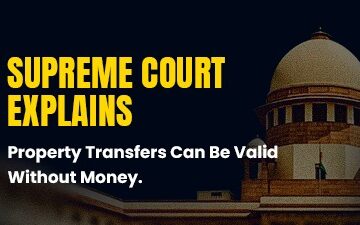In a critical move, the Supreme Court of India recently set aside a condition imposed by the Patna High Court that required bail bonds to be furnished months after the initial bail orders were passed. The Court found such conditions legally unfounded, questioning the delay as unfair to the accused. On October 24, a bench comprising Justices Bela M. Trivedi and Satish Chandra Sharma dismissed two special leave petitions challenging these bail conditions, remitting the matters back to the High Court for reconsideration on merits.
Background of the Case
The Supreme Court’s ruling stems from two bail orders issued by the Patna High Court on September 11 and 19, which involved accused individuals in connection with offenses under the Bihar Prohibition and Excise Amendment Act. In both cases, the High Court had imposed conditions stating that the bail bond submission could only take place after a delay of five and six months, respectively.
The conditions led to substantial criticism. The defense, represented by Advocate Shivam Singh, argued that such conditions are fundamentally unreasonable. “The accused individuals were admitted on bail, but they were then directed to furnish bail bonds six months after the order was passed,” Singh explained to the Supreme Court.
Supreme Court’s Observations on Bail Condition
The Supreme Court bench observed that these delayed bond conditions imposed by the High Court lacked both clarity and reasoning. Justice Bela M. Trivedi remarked, “Without deciding the matter on its merits, the High Court has granted bail with a condition that the accused shall furnish the bail bond after six months. No valid reason was assigned for this delay.”
Justice Satish Chandra Sharma expressed further concerns, underscoring the immediate impact on the accused: “For six months, the accused will remain in jail. If the Court deems the accused entitled to bail, there should be no undue delay.”
The Court noted that if the High Court finds the merits of a case sufficient for bail, it should grant bail without imposing such conditions or, conversely, reject it outright. The current approach of delayed bail bond conditions was deemed legally unsound and contrary to the principles of fair justice.
Relevance of Immediate Bail Bond Conditions
This judgment highlights a significant issue in India’s bail process. Imposing delays in the bail process affects the rights of accused individuals, potentially extending their time in detention without conviction. The Court’s observations on this matter reinforce that bail decisions should be transparent, with clear reasoning, and should respect the accused’s rights.
Fresh Hearing Ordered
The Supreme Court’s decision directs the Patna High Court to conduct a fresh hearing of these cases on November 11, with an emphasis on examining the cases on their merits. The Supreme Court further stressed that such conditions not only lack justification but also create unwarranted suffering for the accused.
The cases have been set for a fresh hearing by the High Court, which must now decide without imposing similar conditions.
Conclusion
The Supreme Court’s firm stance on this matter reiterates the importance of timely and reasonable bail procedures. By addressing the implications of delayed bail bond conditions, the Court upholds a fairer approach to judicial procedures, strengthening the principles of transparency and accountability within India’s legal framework.
The ruling sends a clear message that conditions affecting the accused’s immediate rights, such as bond submission delays, require thoughtful justification, failing which they are likely to face judicial scrutiny and reversal.
Case Information: Nanhak Manjhi vs. State of Bihar, SLP (Criminal) No. 14784/2024; Upendra Manjhi vs. State of Bihar, SLP (Criminal) No. 14764/2024.


